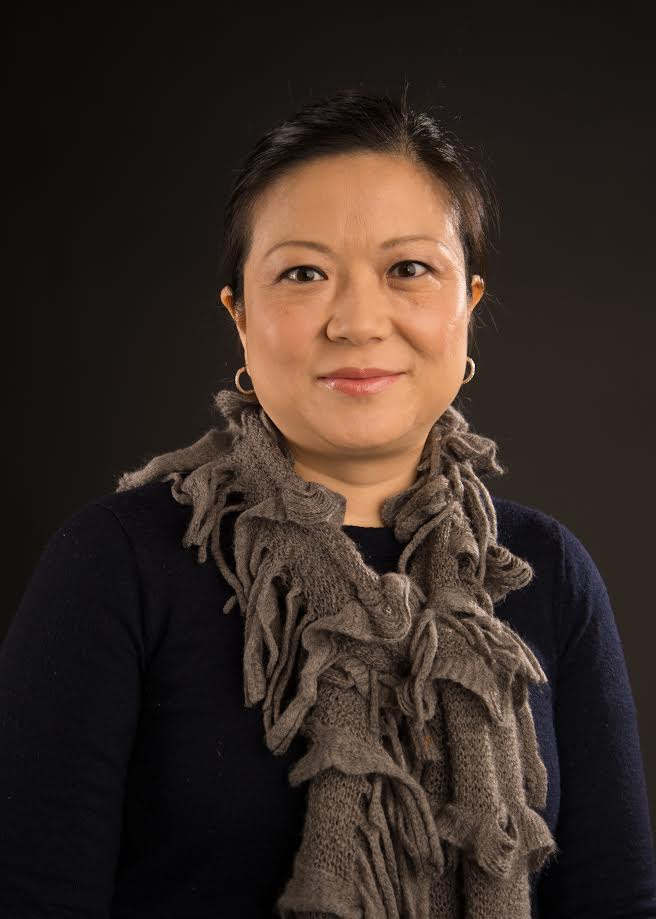By Praphanit Doowa
NORTHWEST ASIAN WEEKLY
A study conducted by Fred Hutchinson Cancer Research Center and the University of Washington (UW) found that a third of the Korean Americans who participated are traveling to South Korea for colorectal cancer screening.
Colorectal cancer affects the colon and rectum. Colon cancer is the third leading type of cancer in males and the fourth in females in the United States, but it is most commonly diagnosed among Korean Americans.
The researchers sought to find out why some Korean Americans are resorting to overseas colorectal cancer screenings.

Linda Ko is an assistant professor of health services at the UW and researcher at Fred Hutch Department of Cancer Prevention. She was the head investigator for the research on Korean Americans and medical tourism. (Credit: Fred Hutch News Service)
“My interest came from knowing that the cancer was one of the highest in the Korean American communities and the fact that we have the lowest screening rates was a concern,” project coordinator Jihye Yoon said. “Also, being here in Washington state, which has the fourth largest Korean community in the U.S., was a great opportunity for me to see how the community adapts to the U.S. system.”
The researchers found low screening rates as one of the main factors why colorectal cancer is mostly diagnosed in Korean Americans. Colon polyps and early colon cancer can have no symptoms, and can take a while to develop, which is why regular screening is important.
According to the current guideline from the U.S. Preventive Task Force, people should start screening at the age of 50 and continue until the age of 75, but Ko saw that this was not the case for Korean Americans.
The results indicated that nearly 65 percent of study participants from Seattle, aged 50-75, were seeking screenings outside the United States.
The group that travelled to South Korea for colorectal cancer screenings also had 9 percent greater odds of being up-to-date with the screenings, compared to those who did not engage in medical tourism.
Medical tourism risks
The study found that due to factors such as health insurance, place of usual care, language proficiency, the age at which screening begins, and household income, Korean Americans don’t get screened often enough in the United States.
Additionally, there are risks involved when patients don’t have a usual place of care, especially when it comes to a treatment that requires continuous care. Guidelines for screenings are not universal and can cause confusion and further delay in treatment.

Illustration showing the commute from America to South Korea via a stethoscope. (Credit: Anni Hong and Praphanit Doowa)
“The patient who engages in medical tourism in another country may be following cancer screening guidelines from another country and not necessarily the guidelines from the U.S.,” said Linda Ko, assistant professor of health services at the UW and researcher at Fred Hutch Department of Cancer Prevention. Ko said that varying guidelines make it harder for patients and doctors to communicate, especially if patients are consulting more than one doctor .
“I kind of see how this data connects with my family,” Yoon said. “Finding different guidelines between here and Korea and how my parents and Korean immigrants who are my parents age, how they can find a mistrust or discomfort in the setting.”
Lack of confidence in U.S. medicine
“If they are not having this conversation with the medical provider in the U.S., there could be mistrust in the U.S. system,” Ko said. “Perhaps, they may even be thinking that they’re not getting the best care.”
Language is another factor that revolves around receiving the best care. Ko explains that being able to communicate with someone in your own language is a big benefit.
Cost savings
Out of the 193 patients surveyed, 104 were not insured. Out of the 104, 43 went to South Korea at least once for a colorectal screening.
“In the U.S., it’s complicated, because the price fluctuates depending on the type of health insurance that the patient carries and whether there is a removal of polyps,” Ko said. “We found out that the cost of a colonoscopy in South Korea is approximately 2.3 percent of the cost in the U.S, which comes to approximately $130-$200.”
Even after including the travel cost with the cost of the screenings, patients enjoy huge savings by getting screenings in South Korea than in the United States, which is probably why they opt to go back to their home country.
By early detection and prevention of colorectal cancer, patients have a better chance at living longer.
The researchers have now started thinking about what is next for them based on all the data.
“We are curious about what people will do once they receive abnormal results,” Ko said. “Would they go back? Because it’s very complex now. Screenings are going to be more frequent, what the results are of the additional tests, the interaction with the medical provider becomes more critical, so we’re curious about what people are choosing to do and how that impacts their care.”
Praphanit can be reached at info@nwasianweekly.com.



